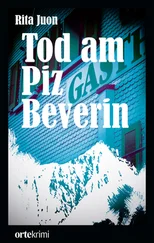Why do you tell me all this?
So that you should know what I’m saying.
Only the corners of the room were still dark. The flame in the lamp looked yellow and daylight was coming through the smeared, dusty windows. She took the lamp and I thought she was going to blow it out. Instead, she walked over to the chimney in the corner and held the lamp above her head.
Look! she ordered.
On the mantlepiece were several porcelain plates decorated with cherries and flowers, a statuette of a chamois standing on a rock with his head high in the air, and a white bust in porcelain of St François de Sales. Unlike everything else in the room, these objects were dusted, carefully arranged and shining.
Have you really saved two million? I asked.
She cocked her head on one side, like a blackbird when it is about to smash a snail against a stone.
I have been listening all night, I said. It’s not as if you’re hiding things from me!
She blew out the lamp, turned her back, and refused to utter another word.
Three days later, on returning home in the evening, I found a note rolled and put into the keyhole of my door. The Cocadrille must have passed through the village and found the door locked. The note, written in her large flowery hand, simply said: If you want to hear more, I have more to tell you . It was useless to visit her in the daytime for she might be anywhere in her vast territory, and so the following evening I took the road past the Madonna’s column. When I turned the corner I saw to my surprise that there was already a light in the window of the roadmender’s house. I knocked at the door.
Who is it?
Jean! I replied. Are you alone?
She undid the lock.
I wasn’t expecting you.
I found your note.
What note?
The note you left in my door yesterday.
I wasn’t in the village yesterday.
Who else could it have been?
Was it signed?
She demanded this mischievously as though she already knew or had guessed the answer.
No, it wasn’t.
The store-room was unchanged, except that there were several bulging sacks in the corner under the ladder, and from their smell I knew they were full of gentian roots. Like roots, her own hands were caked with earth.
What have you done? she asked.
I was at the fair at La Roche.
I was by Le Forêt du Cercle.
In my head I tried to work out who, if not the Cocadrille, might have written the note. Whoever it was intended that I should believe it was written by the Cocadrille; it must have been written by somebody who knew that I had already visited her.
Why have you lit the lamp so early? I asked.
I was going to write.
Another note to me?
To somebody else.
It then occurred to me that, contrary to what she said, the Cocadrille was in the habit of receiving other visitors. And they were men, I felt sure of that. She used her jokes and stories as a bait to attract some company for a little while, to drink across the table — this is why she had commented on my bringing only one bottle of wine — and perhaps also out of a kind of malice, to make a little mischief with the men’s wives. It was a previous visitor who must have written me the note.
Sit down, she said, I’ll heat the soup.
I can’t stay long.
You have so much to do!
She knelt down to blow into the fire and whisper into it: there is something I want to ask you. It was not clear whether she said this to the fire or to me.
She went out to the stable and I heard her washing her hands in a bucket of water.
What can I pay you? she asked when she came back.
A little red.
I carry everything up here on my back!
Is the white wine lighter?
She laughed at that, and glanced at me conspiratorially.
Wait! she ordered and climbed up the ladder.
The wood cracked as it caught fire in the stove. I went over to smell the soup — with age I have become greedy: not that I eat so much and not that, living alone, I cook special dishes for myself, it is simply that I think more about food, thoughts about food pester me like cats that have not been fed. I glanced up at the mantelpiece and the shining porcelain plates decorated with cherry-tree branches. I rubbed my finger on the shelf to check whether it had collected dust and I thought: How unpredictable the Cocadrille is!
Outside, the sun had set behind the Roc d’Enfer, I could tell because the distant rockface, where the cumin grows, had turned pink, the colour of pale coral. Usually it is as grey as wood ash. I went out of the door onto the ledge. I could hear the Jalent below. They said in the village that the Cocadrille seldom washed her clothes; when a garment was rotten with dirt she simply threw it over the edge.
On the other side of the river were orchards and meadows with cows in them. They looked like a picture engraved on a wooden mould for butter. La Mélanie had had just such a mould showing a river at the bottom, two cows in the middle, and some apple trees in the distance. This was the mould the Cocadrille used in the alpage fifty years before.
I looked behind the chicken hutch, I walked right round the rock house with the tree on top of it, I went down the road as far as the corner, I surveyed the mountain above. Nobody was there. Whoever had written the note was going to play no practical joke tonight. I was slightly disappointed for had he come, we could have talked there on the road about the Cocadrille’s stratagems. The air was turning cold, and I returned indoors.
The saucepan was steaming on the stove.
So you’ve seen the ledge I live on!
I looked up. She was standing half-way down the ladder. She had changed her clothes. She was wearing shoes, not sabots, some kind of silk stockings instead of woollen ones, a black heavy silk skirt, a white blouse, a jacket to match the skirt, and around her head and shoulders, a white tulle veil. She was dressed in the clothes in which women go to church to be married.
In God’s name, what do you think you are doing! I shouted.
Her eyes were so intense that they forced you to share in their madness. I remember thinking: For the first time I understand why you are called the Cocadrille. Her eyes made both our long lives seem no more than a moment.
My poor Jean! You’re shitting in your pants!
She came down the ladder, went over to the stove and dipped the ladle into the saucepan. Years before, her entry from the stable had so surprised me that I did not fully understand what she had done until the next day; it was only then that I realised how she must have sprinkled cow’s milk on her breasts. This time I was more percipient. Clearly she had spent several evenings sewing the black silk costume. Even if, as was likely, she had inherited it from Mélanie, it would have been too large for the Cocadrille and would have required drastic alteration. She must have prepared this scene. It was part of a plan.
You certainly have a taste for theatre! I muttered.
There is no theatre in what I do.
Why do you dress up then?
The last time I undressed! She put her hands on her ribs as though to quieten the cackling of her own laughter.
We broke the bread and put it in the soup. Neither of us spoke and the silence was filled with the sound of her sucking from her spoon. She had fewer than half her teeth left. When she had finished, she pushed her plate away, got up, and came back with a bottle of gnôle. Of all the stories I had heard about her, none hinted that she was normally in the habit of drinking. Her shoes were brand new — as indeed they must have been, for nobody else’s would have fitted her.
Do you dress up like this every time you invite a man up from the village?
Abruptly she drank back the gnôle in her glass. She drank it back like a chicken drinks, with a quick stupid toss of its head.
Читать дальше












